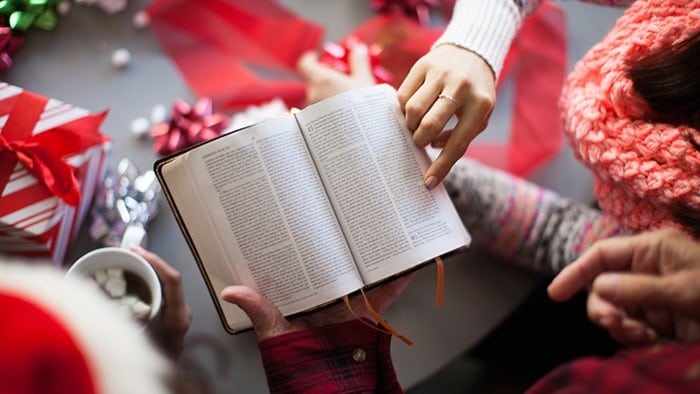The Christmas story comes from the Gospels of Matthew and Luke. Everything we know about the birth of Jesus comes from these two accounts. It’s fun to discover details we’ve missed, and the parts that we’ve added through years of retelling this essential story.
Here are 5 interesting facts about the important season of Christmas.
1. Jesus’s lineage is far from perfect
The genealogy in Matthew is not the ideal family line you’d expect for the perfect Son of Man. Typically, a Jewish genealogy focused on the men, so it’s already intriguing that Matthew includes some of the well-known women in Jesus’s family tree.
Of even greater interest is the fact that this inclusion highlights some eyebrow-raising details. It’s hard to miss that the addition of Tamar reminds Israel that she was Perez’s mother-and also his sister-in-law (Genesis 38). We also have Rahab (a prostitute) and Ruth (a Moabite who wouldn’t be welcomed to worship at the temple).
When Matthew mentions Solomon being David’s son, he makes a point of telling us about Solomon’s mother-except he doesn’t mention Bathsheba’s name. Instead, he reminds us that she used to be Uriah’s wife (the Uriah David had killed to cover up his adultery).
Even in Matthew’s genealogy, he’s letting Israel know that Jesus isn’t going to be the Messiah they expect, and there’s room in His kingdom for everyone.
2. We don’t know how many magi there were
Nativity scenes and Christmas carols typically associate three wise men with the Christmas story, but that’s only because they brought three gifts: gold, frankincense, and myrrh. The truth is that there could have been any number of magi-and they wouldn’t have made it in time to be at the manger.
The details that Matthew gives us in his Gospel are pretty slim. Were they wise men? Astrologers? Kings? Zoroastrians? Sorcerers? We can’t be entirely sure. But what we do know is that they’re part of the birth narrative, and they remind us that God was up to something bigger than Israel.
3. Jesus probably wasn’t born on December 25
Much of the world celebrates Christmas on December 25, but not all. Most Orthodox churches celebrate Christmas on January 7. We celebrate Christmas in December for several reasons.
Some scholars think Jesus was born in the spring, and others believe it was probably early fall. What we do know is that Jesus was born, and that’s a fact worthy of celebration!
4. Christmas pageants aren’t always accurate
The children’s pageants are a wonderful tradition in most churches, but they’re not always scriptural. Over the centuries, they’ve helped introduce elements of Jesus’s birth story that we don’t know to be true.
For instance, the Gospel writers don’t tell us that Mary rode to Bethlehem on the back of a donkey, but it’s one of those ideas we’ve heard so often that we imagine it’s true. The truth is that she probably rode in a horse-drawn cart, or could have ridden a horse or a camel.
There also wasn’t an innkeeper that turned Mary and Joseph away. Luke simply tells us that there was no room in the inn (Luke 2:7). But that’s OK; the innkeeper rounds out the pageant roles available for kids.
5. The X stands for Christ
We’re used to using an x to cross out unnecessary information. So it makes sense that when someone sees Xmas, they assume that the “x” is crossing out or removing Jesus. But that’s not the case.
For centuries, the symbol X was used to represent the Greek letter chi. This is the first letter in the title Christos or Christ. In quite a few early church writings and even New Testament manuscripts, X was used as an abbreviation for Jesus. This became fairly common in Old English when writing words like Christian (xtian) and Christmas (xmas).
Focusing on the birth of Jesus
Ultimately, Christmas is a wonderful time to remember that “God so loved the world that he gave his one and only Son, that whoever believes in him shall not perish but have eternal life” (John 3:16, NIV). And as we prepare to enjoy this festive time of year, we can find joy in the fact that Jesus came to give us life. The Bible contains many inspiring verses for Christmas to help remind us of that.
As Christmas approaches there’s a good chance you still have some shopping to do.
